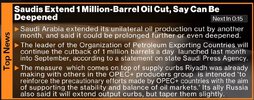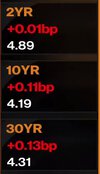- Joined
- 28 May 2020
- Posts
- 7,050
- Reactions
- 13,718
US is been really good at recessions, don't see why they will escape another one.I'm still not sold on the US being recession-proof. Just because their economy is diversified doesn't mean they're not susceptible to recession. And the manufacturing that you mentioned isn't coming online until years down the track, so it's redundant when considering what's happening in the near term.
Exactly. its all they have in the toolbox, so they will bring em down as fast as they took em up.As Einsten said,. Why can't we go back to ZIRP?
" The definition of insanity is doing the same thing over and over and expecting different results. "
Mick











